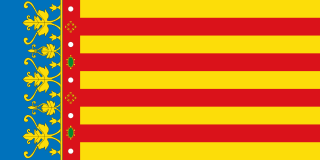 Valencia, located on the southeastern coast of Spain, is a dynamic and culturally rich city that offers a unique blend of history, modernity, and Mediterranean charm. Known for its stunning architecture, vibrant festivals, and culinary delights, Valencia has become an increasingly popular destination for tourists and expatriates alike. Let’s explore some key aspects of Valencia, including its history, landmarks, culture, and cuisine.
Valencia, located on the southeastern coast of Spain, is a dynamic and culturally rich city that offers a unique blend of history, modernity, and Mediterranean charm. Known for its stunning architecture, vibrant festivals, and culinary delights, Valencia has become an increasingly popular destination for tourists and expatriates alike. Let’s explore some key aspects of Valencia, including its history, landmarks, culture, and cuisine.
History: Valencia has a fascinating history that dates back over two thousand years. It was founded by the Romans in 138 BC and later flourished under Moorish rule during the Middle Ages. The influence of these diverse civilizations can still be seen in the city’s architecture and cultural traditions. Valencia played a significant role during the Golden Age of the Mediterranean, becoming a major trading center and maritime power.
Landmarks: Valencia is home to several iconic landmarks that showcase its rich history and architectural wonders. The City of Arts and Sciences, a futuristic complex designed by renowned architect Santiago Calatrava, is a must-visit destination. It includes structures such as the Palau de les Arts Reina Sofia (Opera House), the Hemisfèric (IMAX cinema and planetarium), and the Oceanogràfic (Europe’s largest aquarium). The Valencia Cathedral, known for its famous bell tower called El Miguelete, and the Silk Exchange (La Lonja de la Seda), a UNESCO World Heritage site, are also prominent landmarks.
Culture: Valencia has a vibrant cultural scene with a fusion of traditional and contemporary elements. The city is famous for its festivals, with the most renowned being Las Fallas. This annual event, held in March, features impressive sculptures, fireworks, music, and lively street processions. The Valencia Biennial, an international contemporary art exhibition, highlights the city’s commitment to modern artistic expression. Valencia also has a thriving music and theater scene, with numerous venues showcasing performances ranging from classical to contemporary works.
Cuisine: Valencia is widely regarded as the birthplace of paella, one of Spain’s most iconic dishes. Traditional Valencian paella is made with rice, saffron, chicken, rabbit, and vegetables, though variations with seafood or other meats are also popular. Valencia’s culinary scene extends beyond paella, offering a wide range of delicious dishes. Agua de Valencia, a refreshing cocktail made with orange juice, cava (sparkling wine), vodka, and gin, is a local favorite. The Central Market (Mercado Central) is a food lover’s paradise, with stalls offering fresh produce, seafood, spices, and local specialties.
Lifestyle: Valencia offers a high quality of life with a relaxed Mediterranean lifestyle. The city’s location on the coast allows residents and visitors to enjoy beautiful sandy beaches and a wide range of water activities. The Turia Riverbed Park, a former river channel transformed into a stunning urban park, provides ample space for outdoor recreation, including jogging, cycling, and picnicking. Valencia is also known for its bike-friendly infrastructure, making it easy to explore the city on two wheels.
Valencia’s rich history, architectural wonders, vibrant festivals, and delectable cuisine make it a captivating destination that appeals to a diverse range of visitors. The city’s unique blend of tradition and modernity, coupled with its Mediterranean charm, offers a lifestyle that is both laid-back and culturally rich. Whether strolling through historic streets, indulging in local delicacies, or immersing oneself in the city’s vibrant festivals, Valencia provides an unforgettable experience that embodies the spirit of Spain’s enchanting eastern coast.

 Valencia, located on the southeastern coast of Spain, is a dynamic and culturally rich city that offers a unique blend of history, modernity, and Mediterranean charm. Known for its stunning architecture, vibrant festivals, and culinary delights, Valencia has become an increasingly popular destination for tourists and expatriates alike. Let’s explore some key aspects of Valencia, including its history, landmarks, culture, and cuisine.
Valencia, located on the southeastern coast of Spain, is a dynamic and culturally rich city that offers a unique blend of history, modernity, and Mediterranean charm. Known for its stunning architecture, vibrant festivals, and culinary delights, Valencia has become an increasingly popular destination for tourists and expatriates alike. Let’s explore some key aspects of Valencia, including its history, landmarks, culture, and cuisine.